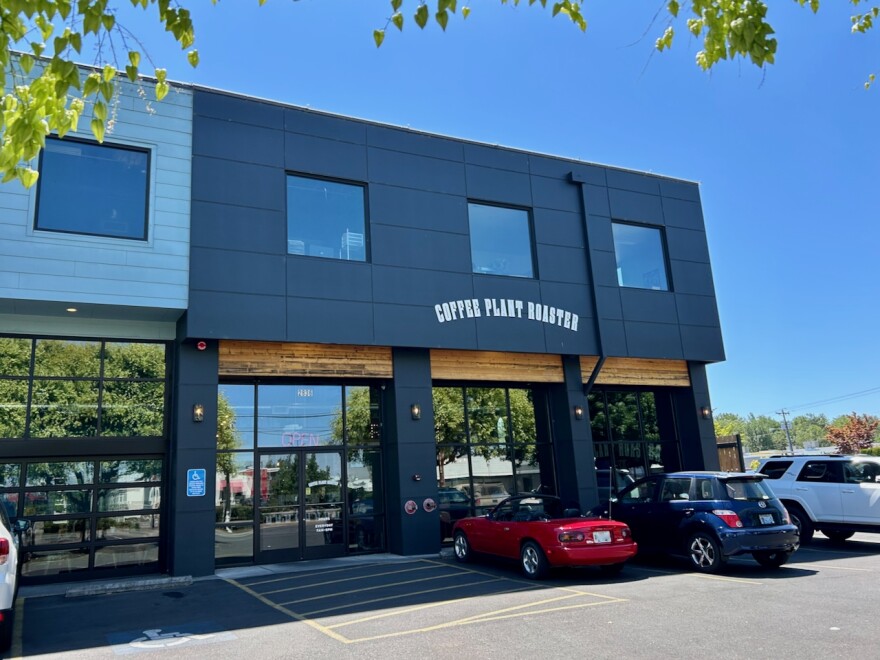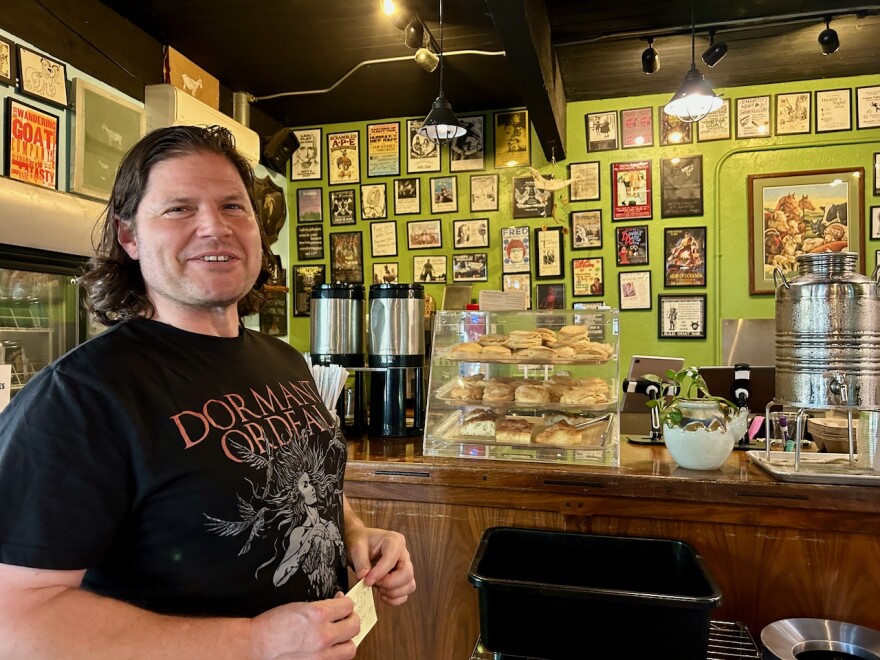Being a small business owner in 2025 has felt like a roller coaster ride for many, and that includes Eugene-area coffee shops.
The cost of coffee has always been volatile, as it’s dependent on weather and imports from faraway countries. But tariffs imposed by the Trump Administration are bringing coffee sellers to a tipping point. Tariffs range from 10% in most coffee-producing countries to 19% in Indonesia, and there are threats of bigger increases in Brazil.
Austin Weiner, the owner of Coffee Plant Roaster in Eugene, said they buy beans in bulk for the year.
“We’re just getting to the point where we’re having to start to purchase to replenish a lot of our crop," he told KLCC. "So, as this goes into the next quarter and beyond, that’s when we’re going to have to pass along some sort of increase to our customers, inevitably.”

Weiner said his Nicaraguan suppliers are already charging 20% more, and African sources are charging 25%-30% more than they did six months ago. He said he buys directly from people he has relationships with, not from a distributor. And he said there aren’t many options left to cut costs.
Aaron Maltz is the general manager of Wandering Goat Coffee in Eugene's Whitaker neighborhood. He said inflation means everything has gotten more expensive.
“From cups and lids and straws and napkins and flour and sugar … there’s nothing that we purchase that has not increased in price,” he said.
Maltz said the cost of coffee filters, for example, has doubled from a year or two ago.
In addition, he said the company has stretched their margins thinner as they wait for the outcome of tariff talks. “Even our importers who have been doing this for a very long time, even they are somewhat in the dark," said Maltz. "There are so many questions unanswered that everyone is sort of in this waiting game.”
Maltz said they won’t lower the quality of their coffee, and will try to maintain steady prices for customers as long as possible. He said he's reluctant to raise prices when tariffs could easily be lowered, but he thinks prices will need to rise for some products soon.
Maltz holds out one hope. He told KLCC, “There's discussion about trying to make coffee exempt from tariffs because it's not something that we produce as a country.” In the meantime, he counts on a greater volume of sales to make up for the low profits from each individual sale.



